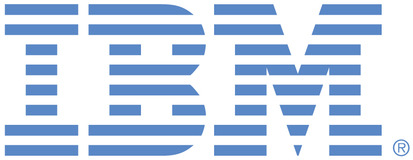
This is an IBM Automation portal for Cloud Management, Technology Cost Management, Network Automation and AIOps products. To view all of your ideas submitted to IBM, create and manage groups of Ideas, or create an idea explicitly set to be either visible by all (public) or visible only to you and IBM (private), use the IBM Unified Ideas Portal (https://ideas.ibm.com).
Shape the future of IBM!
We invite you to shape the future of IBM, including product roadmaps, by submitting ideas that matter to you the most. Here's how it works:
Search existing ideas
Start by searching and reviewing ideas and requests to enhance a product or service. Take a look at ideas others have posted, and add a comment, vote, or subscribe to updates on them if they matter to you. If you can't find what you are looking for,
Post your ideas
Post an idea.
Get feedback from the IBM team and other customers to refine your idea.
Follow the idea through the IBM Ideas process.
Specific links you will want to bookmark for future use
Welcome to the IBM Ideas Portal (https://www.ibm.com/ideas) - Use this site to find out additional information and details about the IBM Ideas process and statuses.
IBM Unified Ideas Portal (https://ideas.ibm.com) - Use this site to view all of your ideas, create new ideas for any IBM product, or search for ideas across all of IBM.
ideasibm@us.ibm.com - Use this email to suggest enhancements to the Ideas process or request help from IBM for submitting your Ideas.

Yes, in this case it should not be a problem.
When you say "per trace", that means for a single call to a given endpoint?
Currently I've seen batches of up to 6 SQL statements and traces with like a dozen mongo or sql statements. Small enough in your opinion?
A restart should be enough.
I do not see it would greatly impact application performance. But if you have huge amount of sql statement per trace, then you might want to try it on your test environment first.
Thank you. With a restart we don't need to wait 10 minutes, correct?
Is there a chance that this would impact application performance? Would you say that this warrants performance testing?
Hi, the option to disable span batching for Java is released, here is the instruction:
Disabling batching
Span batching can be disabled with the below configuration
This configuration needs a restart of the application or a complete reset of monitored applications in Agent(Agent need to be shut down for >10 minutes)
Yes, our app is a Java Spring Boot app accessing a MongoDB and an Oracle SQL databases. If there is a way to disable the aggregation in our case, I'd appreciate it.
Thanks for reaching out. Could you share which environment/language you are using? We do have certain features to disable such aggregation.